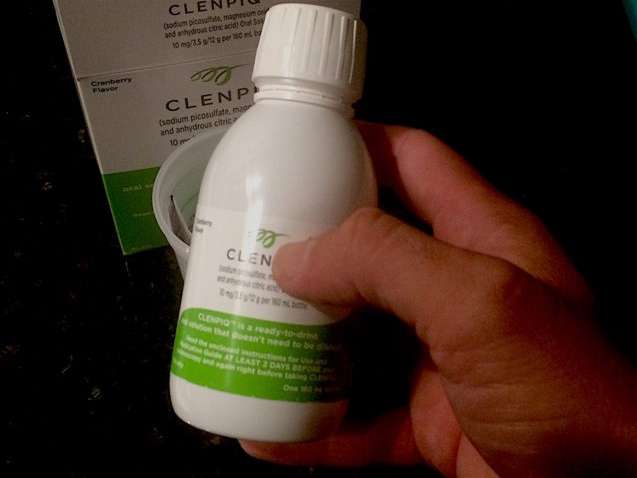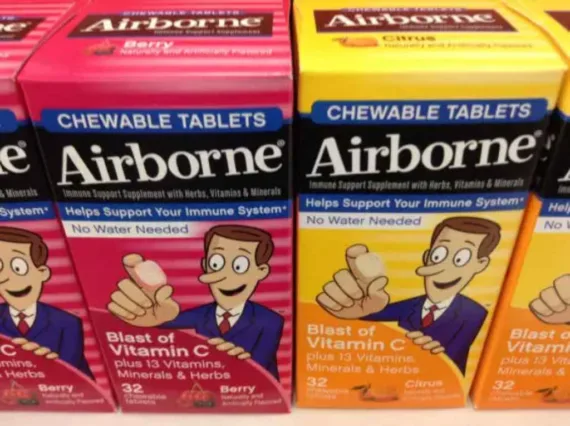 Maybe you’ve heard that antioxidants have the ability to prevent cancer from forming in the body or possibly even reverse the effects of Alzheimer’s disease. At least, that’s the implication perpetuated by some aggressive companies in the health industry today.
Maybe you’ve heard that antioxidants have the ability to prevent cancer from forming in the body or possibly even reverse the effects of Alzheimer’s disease. At least, that’s the implication perpetuated by some aggressive companies in the health industry today.
In fact, if you have perused the shelves of your local health food store lately or noticed a few of the more heavily-publicized herbal supplements on the Internet, then you’ve probably discovered that most of them happily promote the fact that they contain high levels of antioxidants.
Of course, this isn’t surprising since antioxidants in recent years have been shown to fight harmful, potentially disease-causing processes in the human body. Scientists have even proposed the idea of antioxidants playing a vital role in the treatment of neurological afflictions like Parkinson’s disease and preventing several types of cancer.
So naturally, the dietary supplement industry was understandably eager to create antioxidant-rich products and announce their potential “miracle” cures to the public. After all, with so many scientists and researchers clamoring over the promising initial findings about antioxidants in the news, sales of antioxidant supplements would be brisk and inevitable. Marketing such products is relatively easy.
But although numerous clinical studies and trials have been performed to date, the question still remains years later: Are antioxidants effective at treating or preventing disease or not?
Below we take a hard look at the real facts about antioxidants and confront some of the more sensational claims concerning antioxidants in order to reveal:
- The truth about how antioxidants work
- The role of antioxidants in combating disease
- Just how effective antioxidants really are
First, let’s find out what antioxidants are precisely and what kind of health benefits you can actually gain from them.
What Exactly Are Antioxidants?
Antioxidants are substances we consume — usually through healthy raw foods — that have the ability to reduce or even prevent oxidation reactions in the human body.
Although oxidation reactions are a natural, vital part of body processes, they can also be harmful as they create free radicals that are known to cause cellular damage. Science has also discovered that lower levels of antioxidants in the body can cause a condition called oxidative stress, which can harm or destroy healthy cells and possibly damage DNA.
So, why is all this important?
Oxidative stress is thought to be an underlying factor in several human diseases. The implication of this possible correlation is profound. Researchers have theorized that if low levels of antioxidants in the body helped cause a disease, then high levels of antioxidants in the body could help cure a disease. At least, that’s the basic “nutshell” version of the theory.
The scientific trials and studies that came later have been much more revealing though, as you will see below.
The Benefits Of Antioxidants
As stated earlier, we get the bulk of our antioxidants by eating healthy foods such as legumes, nuts, seeds, fruits, vegetables, lean meats, and shellfish. Even coffee, tea, red wine, and dark chocolate contain significant levels of antioxidants.
The most antioxidant-rich foods you can consume though are primarily beans (red, pinto, black) and berries (wild blueberry, cranberry, blackberry), as ranked by the United States Department of Agriculture.
The most common recommendations have been to eat a wide, colorful variety of natural foods in your diet (rainbow diet) or choose foods that contain pro Vitamin A, Vitamin C, Vitamin E, and Selenium (ACES diet).
The actual verifiable benefits of antioxidants, however, are a little harder to pinpoint. While antioxidants do help slow the destructiveness of free radicals in the body and therefore prevent the damage of cells, it’s unclear if antioxidants alone can be attributed to any specific health benefit. It may be that other food properties play a part or work in tandem with antioxidants.
For example, natural assumption would lead you to believe that because antioxidants save healthy cells, you may live longer or prevent the effects of aging. The theory has already been postulated. It’s called “free radical theory”. And although the idea is tantalizing, recent studies have shown that specific antioxidant therapy produced no results and may, in fact, increase mortality. (Miller, Pastor-Barriuso, Dalal, Riemersma, Appel, Guallar (2005) Annals of Internal Medicine(142):37-46)
One main problem with the free radical theory is the failure of antioxidants administered as dietary supplements, like vitamins E and C, to significantly increase maximum lifespan. Proponents of the radical theory believe that dietary antioxidants, unlike natural antioxidants produced by cells, do not reach mitochondrial DNA, leaving this site susceptible to radical attack. Interestingly, even though supplemental antioxidants fail to increase maximum lifespan, they do increase the chances of living to the maximum lifespan. This may be due to antioxidant protection of other parts of the cell, like cellular proteins and membranes, from radical damage. Source
It’s safe to say that a diet consisting primarily of the fresh fruits, vegetables, lean meats, grains, nuts, and legumes mentioned above is healthy for you and you derive benefits from eating them. But, until more conclusive studies are performed, antioxidants alone can’t be shown to provide any proven health benefits beyond reducing cellular decay.
Do Antioxidants Help To Prevent Or Treat Disease?
Today, antioxidants are being used in medications to treat traumatic brain injuries. The brain is most susceptible to oxidative injuries, so antioxidants are thought to be a promising new treatment. In fact, possible experimental treatments are being explored for neurological diseases like Parkinson’s or Alzheimer’s. However, as of yet, there are no conclusive results.
Also, it’s been shown that a diet consisting of fruits and vegetables lowers the risk of heart disease. However, the premise that antioxidants in the food may be the underlying reason has been all but dismissed, as clinical trials showed no effect from antioxidant therapy at lowering the risk of heart disease. (Stanner, Hughes, Kelly, Buttriss (2004) Public Health Nutr 7 (3):407-22)
Other studies using antioxidants with Vitamin E and moderate level antioxidant therapy have also been conducted and in each case there were little or no effects in preventing or treating specific health conditions like cancer or heart disease. (Vivekanathan, Penn, Sapp, Hsu, Topol (2003) Lancet 361 (9374):2017-23), (SU.VI.MAX study)
How To Get The Best Results From Antioxidants
Although antioxidants have not been clinically proven to treat or cure any specific health problem, you still need them to live a healthy life.
The best way to make sure you get the best health benefits from antioxidants is to eat a healthy, balanced diet full of fresh fruits and vegetables.
Dietary supplements rich in antioxidants may be an option as well if taken in moderation — especially if your diet is lacking in good nutrition.
Remember, the real truth about antioxidants is that they don’t cure heart disease or prevent cancer (or any other disease). At least not yet. But you can clearly see that they are an integral part of a healthy diet and vitally important if you want to live a truly healthy life.
More About Antioxidants
- Discovery Health: How Antioxidants Work
- Using Antioxidants In Health & Cooking
- Heart Disease: Statins Good, Antioxidants Bad?
- Antioxidants Fall From Grace: The Downsides
- Clinical Trials Involving Antioxidants Have Been Disappointing




